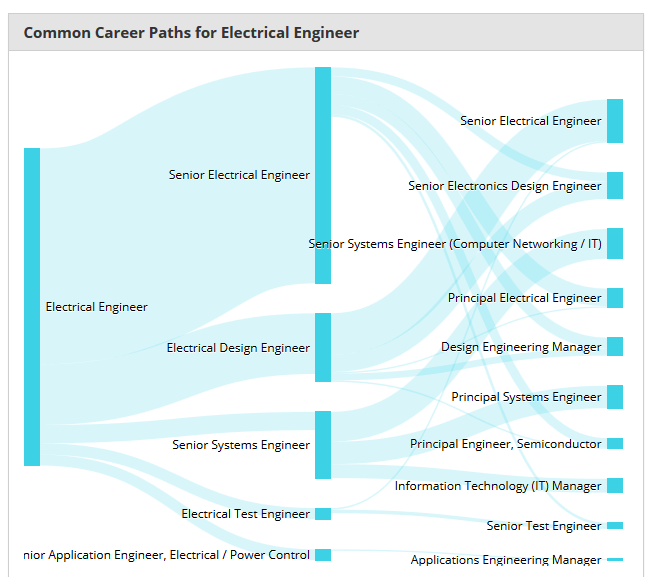The Bureau of Labor Statistics lists electrical engineering as a lucrative career, with a 2014 median salary of $93,260 . Electrical engineering is an engineering branch responsible for designing the power generation and distribution systems that supply electricity to specific sites, equipment, or on the large-scale. In other words, electrical engineers apply the physics and mathematics of electricity and electromagnetism to systems that process information, communications, or transmit energy.
As of 2014, the field is projected to host approximately 315,900 positions in the United States alone, with the lowest 10% earning $53,000, and highest 10% earning over $100,000. With so many positions available across multiple industries, navigating the job hunt can be arduous and confusing. For this reason, we’ve put together a couple of hierarchical lists that highlight the average career path.
Electrical engineers may find employment in a wide range of industries across both the private and public sector, for anything involving power transmission will require their expertise. These include:

Electrical engineers require a broad expertise across a number of sub-disciplines such as electrical power systems, electronics, microelectronics, signal processing, wireless and wireline communication systems, instrumentation, integrated circuit design, software engineering, and even computer design. For this reason, the Bachelor of Science in Electrical Engineering is the minimum qualification to enter the field, with most candidates eventually obtaining a specialized education via the master’s degree.
Job titles vary from company to company, leaving years of experience as the primary distinguishing factor between rank. The most common heirarchy is:
- Associate Engineer (0-2 years, no Master's)
- Engineer (1-5 years no Master's/0-5 years Master's)
- Senior Engineer (4-10 years)
- Staff Engineer (8+)
- Principal engineer (15+, these are our part experts)
- Engineering manager (10+ years)
- Fellow (our system experts)
- Executive
Another company breaks down their hierarchy as follows:
- Intern/Trainee
- Engineer
- Senior Engineer
- Project Engineer
- Senior Project Engineer
- Associate
- Senior Associate
- Vice President
- Senior Vice President
- Principal
- Senior Principal
- Managing Principal
Another example:
- Engineer I
- Engineer II
- Engineer III
- Sr. Engineer (5years exp)
- Staff Engineer (10 years exp)
- Sr. Staff Engineer (15 years exp)
- Principal Engineer (20 years exp)
- Engineering Fellow (Guru)
According to Payscale , the most common career path for electrical engineers is as follows:

How did the above hierarchy structures relate to your own experience?
Advertisement
Learn more about Electronic Products Magazine





